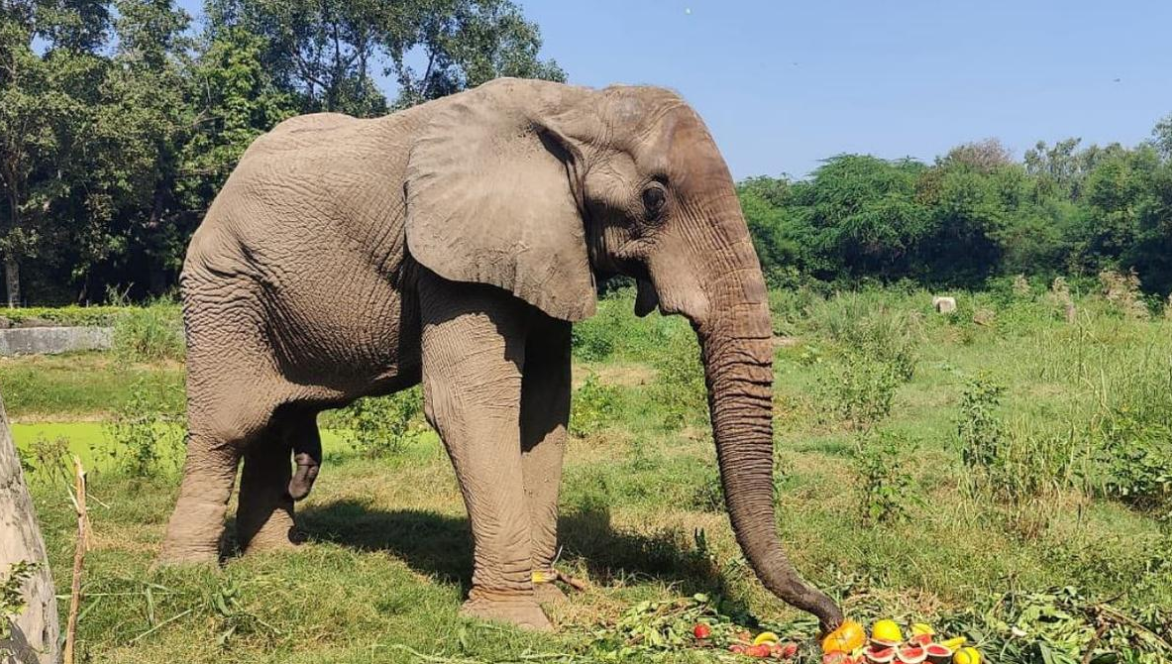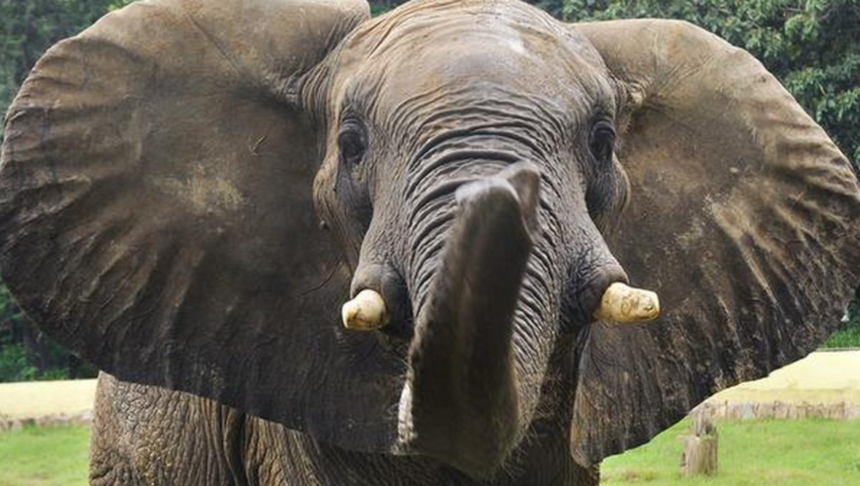1. Introduction: The Importance of Ethical Standards in Zoos
The recent suspension of the Delhi Zoo’s membership from the World Association of Zoos and Aquariums (WAZA) for six months has raised significant concerns regarding animal welfare, accountability, and ethical standards within zoos. This decision reflects a broader movement toward enhancing the standards of animal care and conservation in captivity. As more people become aware of the challenges facing zoos worldwide, the actions of organizations like WAZA play a crucial role in maintaining a high standard of animal welfare and promoting ethical practices. This article explores the implications of WAZA’s decision, the reasons behind the suspension, and the broader context of animal care in zoos.
2. Understanding WAZA: Its Role and Significance
WAZA, established in 1935, is a global organization that aims to promote the role of zoos and aquariums in the conservation of biodiversity. It serves as a network for institutions that adhere to strict ethical and professional standards in animal care, conservation, and education. Membership in WAZA is a mark of quality and commitment to animal welfare and conservation efforts.
The organization works closely with its members to ensure that they are providing the highest standards of care for animals, engaging in conservation efforts, and educating the public about wildlife issues. WAZA also provides guidance and support for zoos and aquariums striving to improve their practices. The suspension of a member institution is a serious matter and indicates a failure to meet the standards expected by WAZA.
3. The Reasons Behind the Suspension
The suspension of the Delhi Zoo’s membership stems from several factors related to animal welfare and management practices. Reports of poor living conditions for animals, inadequate facilities, and insufficient care for the residents of the zoo have raised alarms among animal welfare advocates and organizations.
3.1. Inadequate Animal Care
One of the most critical concerns leading to the suspension is the inadequate care provided to the animals at the Delhi Zoo. Reports have highlighted issues such as improper nutrition, lack of enrichment, and insufficient veterinary care. Elephants, big cats, and other animals in the zoo were found to be living in subpar conditions, which does not align with WAZA’s standards for animal welfare.
3.2. Poor Facilities
The facilities at the Delhi Zoo have come under scrutiny for their failure to provide an environment conducive to the well-being of the animals. Overcrowding, lack of space, and inadequate habitat design can lead to stress and behavioral issues in captive animals. For many species, particularly large mammals like elephants, proper space and environment are crucial for their physical and psychological health.
3.3. Lack of Transparency and Accountability
Another factor contributing to the suspension was the perceived lack of transparency in the zoo’s management practices. WAZA requires its members to adhere to ethical guidelines and maintain open communication regarding animal care and welfare. The Delhi Zoo’s management has faced criticism for failing to adequately address concerns raised by the public and animal welfare groups, leading to questions about accountability.
4. The Implications of Suspension
The six-month suspension from WAZA has significant implications for the Delhi Zoo, as well as for the animals in its care and the public perception of zoos in India.
4.1. Impact on Animal Welfare
The immediate impact of the suspension is that it puts pressure on the Delhi Zoo to improve its standards of animal care. The zoo will need to take swift action to address the issues that led to the suspension, ensuring that the animals receive the proper care and facilities they deserve. This could involve investing in better enclosures, improving nutrition, and enhancing veterinary services.
4.2. Public Perception and Trust
The suspension can also affect public perception of the Delhi Zoo. As awareness of animal welfare issues grows, visitors and the community may become more critical of institutions that fail to meet ethical standards. This can lead to a decline in visitor numbers and public support, ultimately impacting funding and resources for the zoo. 
4.3. Pressure for Reform in Indian Zoos
The suspension may serve as a catalyst for broader reform in zoos across India. As the Delhi Zoo grapples with the consequences of its suspension, other institutions may take notice and proactively evaluate their own practices to ensure compliance with ethical standards. This can lead to widespread improvements in animal care and welfare across the country.
5. The Broader Context of Zoos in India
The situation at the Delhi Zoo reflects broader issues facing zoos in India. While many zoos have made strides in improving animal care, others continue to struggle with inadequate facilities and management practices.
5.1. The Role of Zoos in Conservation
Zoos have the potential to play a crucial role in conservation efforts, particularly for endangered species. However, this potential can only be realized if zoos prioritize animal welfare and ethical practices. As public awareness of animal welfare issues grows, zoos must adapt to meet the expectations of society.
5.2. Advocacy and Public Awareness
The suspension of the Delhi Zoo from WAZA has reignited discussions around animal welfare in India. Advocacy groups, animal rights organizations, and concerned citizens are increasingly vocal about the need for reform in zoos and the treatment of captive animals. Public awareness campaigns can help raise consciousness around these issues and encourage institutions to adopt better practices. 
5.3. Government Regulations and Oversight
The Indian government has made some progress in strengthening animal welfare regulations; however, enforcement remains a challenge. The suspension of the Delhi Zoo serves as a reminder of the need for more robust oversight and regulation of zoos in India. Increased scrutiny from government authorities and animal welfare organizations can help ensure that zoos are held accountable for the care they provide to animals.
6. Steps Toward Improvement at the Delhi Zoo
In light of the suspension, the Delhi Zoo must take immediate and effective steps to address the concerns raised by WAZA and animal welfare advocates.
6.1. Conducting a Comprehensive Review
The zoo should initiate a comprehensive review of its facilities, animal care practices, and management strategies. Engaging independent experts and animal welfare organizations in this review process can provide valuable insights and recommendations for improvement.
6.2. Upgrading Facilities
Investing in the upgrading of animal enclosures and facilities is crucial for meeting animal welfare standards. This may involve expanding habitats, providing enrichment opportunities, and ensuring that animals have access to proper nutrition and veterinary care.
6.3. Training and Capacity Building
Staff training is essential for ensuring that zookeepers and management are equipped with the knowledge and skills necessary to provide high-quality care for the animals. The zoo should invest in ongoing professional development for its staff to stay updated on best practices in animal care and welfare.
6.4. Enhancing Transparency and Communication
The zoo must commit to greater transparency and communication with the public, advocacy groups, and WAZA. Regular updates on improvements and changes made to animal care practices can help rebuild trust and credibility.
7. The Role of the Public and Advocacy Groups
The public plays a crucial role in shaping the future of zoos and animal welfare practices. Advocacy groups and concerned citizens can hold institutions accountable and demand higher standards for animal care.
7.1. Raising Awareness
Public awareness campaigns can help educate individuals about the importance of animal welfare and the need for reform in zoos. By engaging in discussions and sharing information, individuals can contribute to a broader movement for change.
7.2. Supporting Ethical Zoos and Sanctuaries
Supporting ethical zoos and sanctuaries that prioritize animal welfare can encourage other institutions to follow suit. Public support for organizations that demonstrate a commitment to humane treatment can create a positive feedback loop, leading to improvements in the industry as a whole.
7.3. Advocacy and Activism
Advocacy groups can continue to push for legislative changes and increased oversight of zoos. By working with policymakers and raising their voices, advocates can influence positive changes in animal welfare regulations.
8. Conclusion: A Call for Change
The suspension of the Delhi Zoo’s membership from WAZA is a wake-up call for the institution and for zoos across India. It underscores the importance of prioritizing animal welfare and maintaining ethical standards in the care of captive animals.
As the zoo moves forward, it must take decisive action to address the issues that led to the suspension and demonstrate a commitment to improving the lives of its animal residents. The public, advocacy groups, and government regulators all have a role to play in holding zoos accountable and ensuring that animals receive the care and respect they deserve.
In a world where awareness of animal welfare is increasing, the future of zoos will depend on their ability to adapt and meet the expectations of society. The suspension serves as a crucial reminder that the treatment of animals should always be at the forefront of institutional practices, and it is up to all stakeholders to work together toward a more compassionate future for all living beings. ALSO READ:- Delhi Zoo’s Lone African Elephant Shankar Released from Chains: A New Era of Freedom and Care 2024





